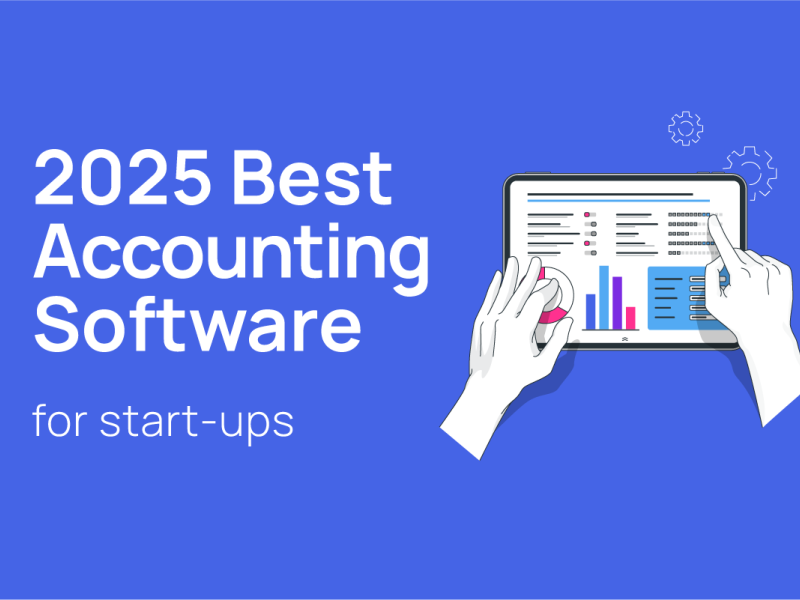5 Essential Tips for Registering Your New Business
-
Richard Jackson - 22/01/2024

Embarking on the journey of starting a new business is like setting sail on an exciting adventure, but there's no denying the challenges that come with it. The first crucial port of call is registering your business with the His Majesty's Revenue and Customs (HMRC). This ensures your business is legally compliant and meets your tax obligations.
This article outlines five essential tips on registering your new business with HMRC so you can navigate this process smoothly.
- Find Your Business Fit
Before you wade into a sea of paperwork, you need to take a moment to decide on the best business structure for your new venture. This is an important decision as your choice will influence your tax responsibilities, legal duties, and how you run your new business.
In the UK, you've got a few options to choose from:
Sole Trader: The solo act of business ownership. Registering with HMRC is simple; just let them know you're self-employed. You will be obligated to complete an annual self-assessment tax return.
Limited Company: A separate legal entity offering limited liability. This option provides more protection for your assets. However, registering a limited company with HMRC is a little more complex than operating as a sole trader. This involves incorporating your company with Companies House and registering for Corporation Tax with HMRC.
HMRC offers a helpful step by step guide here if you wish to do this yourself. If notwe can assist with Company Registration.
A Partnership: Join forces with one or more business partners and register your partnership with HMRC. Each partner takes on their slice of profits and responsibilities and must complete a self-assessment tax return.
- Register for your Unique Taxpayer Reference
Now that you've picked your business identity, you can register for your Unique Taxpayer Reference (UTR), which is vital for tax purposes. This 10-digit code is your business's signature when dealing with HMRC.
Each entity registers in a slightly different way:
Sole Traders: You'll automatically get your UTR when registering as self-employed.
Limited Companies: Once incorporated with Companies House, HMRC will be informed and send you your UTR by post.
A Partnership: The UTR number will be sent by HRMC, identify the partnership's records, and differ from the UTR for any partners.
Your UTR is critical information, so keep it safe and readily accessible. You will need it to file taxes, open a business bank account and most other official business matters.
- Navigate the tax system
Navigating the seas of the UK tax system can feel like being stuck in a swirling current! Here's a quick guide of your obligations depending on your business structure:
Sole Traders: You are obliged to file an annual self-assessment tax return. This form reports your income and expenses and helps calculate the tax and National Insurance you owe.
Limited Companies: Welcome to the world of Corporation Tax! Your profits will be of interest to HMRC, and the deductions will be made accordingly.
A Partnership: Partnerships aren't taxed. All income received by the partnership must be shared between the partners. The partners are then taxed on the share of the profits they're allocated via self-assessment forms.
A great tip for any new business is to register for your HMRC Business tax account. It will allow you to add all the taxes applicable to your business and keep track of yoru liability.
- Maintain accurate records
Accurate record-keeping is critical to keeping your profits flowing and ensuring your business remains compliant! At RPJ Accountancy, we will help you make the most of cloud accounting and set you up with a system which gives you the correct information at the right time.
By far the greatest benefit of bookkeeping is in the organisation and information it provides. With accurate books you should be able to track your Corportation tax, VAT and personal tax liability as you go through the year allowing you to put aside money for those payments ahead of time. This makes paying your taxes a lot less painful.
We have a start-up solution specifically designed to guide new company owners throguh the steep learnign curve during their first year. Find out more about our Start-up solution here.
- Keep with the flow!
HMRC has its own flow, and missing a wave could cost you! For instance, Corporate Tax must be paid before a specific date after your accounting period ends. PAYE must be paid at certain times, as must self-assessment payments.
Missing these key dates might have HMRC tapping your shoulder with penalties and interest charges. Your accountant should keep you advised of your due dates and your liability as you go through the year but it's a good idea to ask them for a list of key payment dates for all your taxes so you can add those dates to your own calendar. After all its you who ends up with the fine for any late payment!
Key Takeaways
Registering your new business with HMRC is vital in establishing a legally compliant and financially responsible enterprise. Alongside obtaining suitable legal advice, consideration of these tips can help contribute to your business's long-term success and sustainability, allowing you to focus on the long-term success of your UK-based business.
If you need assistance registering your new UK business with HMRC, our experienced team of accountants and business advisors can help you ensure you make the right decisions. Get in touch with us at RPJ Accountancy here.


